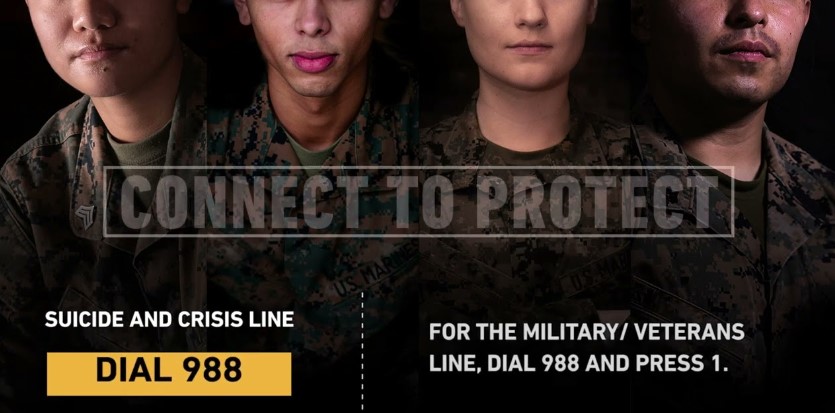Mission:
To strengthen the overall fitness and effectiveness of the Army's total workforce and to enhance the mission readiness of the Soldiers. The ASAP will support the Army's individual and unit readiness by providing alcohol and other drug abuse deterrence through alcohol and drug testing, prevention, rehabilitation, program evaluation and research. APG ASAP consists of four main areas: drug testing program; employee assistance programs and prevention services.
ASAP: (410) 278-3784 (DRUG)
Drug Testing Program: 410-278-3137/7779
Employee Assistance Program: 410-278-5319/1716
Prevention Services: 410-278-4013
Suicide Prevention Program: 410-278-0671
ASAP Program Authority
In accordance with Army Regulation 600-85 (dated 23 July 2020) and Army Regulation 350-1, Table G-3 requires:
- All military personnel will receive a minimum of four (4) hours of substance abuse training annually.
- All civilian personnel will receive a minimum of two (2) hours of substance abuse training annually.
- All supervisors will receive an additional one (1) hour of substance abuse training annually.
- Commander will refer any Soldier to the ASAP for evaluation within five (5) duty days of notification that he/she received a positive urinalysis for illicit drug use or was involved in alcohol-related misconduct.
- Every Solider will be drug tested at least once annually.
Drug Testing Program
Established in 1971 by the Secretary of Defense and promulgated by DoD Instruction 1010.01, the Army policy states all Soldiers will be tested at least once per year at random and employees in testing designated positions (TDP) are required to test on a random basis at 50%.
Drug testing of urine can detect various drugs including, but not limited to: amphetamines, barbiturates, LSD, opiates, cannabis, cocaine, anabolic steroids and alcohol with a high degree of specificity. An active and aggressive biochemical testing program serves as a powerful tool and effective deterrent against substance abuse.
Effective deterrence requires a selection process that ensures that all Soldiers believe that on any day of the year, he/she may be tested. Smart Testing ensures that testing dates, times and location is varied and reinforces "any day testing".
Employee Assistance Program
By providing confidential evaluations, counseling assistance and referral services for all Department of the Army civilian employees and their family members, retirees, and military family members , the Employee Assistance Program connects employees with essential civilian services including:
- Family and human service agencies
- Marriage counselors
- Career counselors
- Alcohol counselors/programs
- Drug counselors/programs
- Community support groups
- Attorneys
- Physicians and psychologists
- Social workers
- Clergy
- Financial and credit counselors
Self-Referral: Eligible individuals can call the office to make an appointment for services or discuss personal problems.
Medical Referral: Occupational health physician or nurse can refer employees for evaluation or assistance.
Management Referral: Supervisors can refer employees for assistance.
Union Referral: Shop steward can advise union employees to seek assistance.
Prevention Services Training
Education and training opportunities are available to all military, civilian employees, retirees and family members associated with APG.
Training is available in many formats including:
- Online ASAP training
- Face-to-face presentations
- Community events both on and off the installation
- Awareness campaigns
- Supervisor Training
- Alcohol and Drug Abuse Prevention Training (ADAPT) (12 hour program)
- Unit Prevention Leader (UPL) certification
Suicide Prevention Program

In accordance with Army Regulation 600-63 and Army Regulation 350-1, the following suicide prevention training is required:
- Soldiers and civilian personnel will receive annual Ask, Care, Escort (ACE) training.
- First line supervisors will receive ACE-Suicide Intervention (ACE-SI) four hour training. This is a one-time requirement.
Suicide Prevention Resources
-
Army G-1 Suicide Prevention Program
Offers a variety of comprehensive websites and robust resource guides for soldiers, veterans, civilians and their families in one convenient location. -
Comprehensive Soldier and Family Fitness (CSF2)
The CSF2 program is designed to build resilience and enhance performance of Army soldiers, their families, and Army civilians. -
National Suicide Prevention Lifeline
988; Provides free and confidential emotional support 24 hours a day, 7 days a week to people in suicidal crisis or emotional distress. -
Substance Abuse and Mental Health Services Administration (SAMHSA)
SAMHSA is the agency within the U.S. Department of Health and Human Services that leads public health efforts to advance the behavioral health of the nation. -
Suicide Prevention Resource Center (SPRC)
SPRC is the nation’s only federally supported resource center devoted to providing technical assistance, training, and materials to increase the knowledge and expertise of suicide prevention practitioners and other professionals serving people at risk for suicide. -
Veterans Crisis Line
988; Connecting Veterans in crisis, their families and friends with qualified, caring Department of Veterans Affairs responders through a confidential toll-free hotline, online chat, or text.





